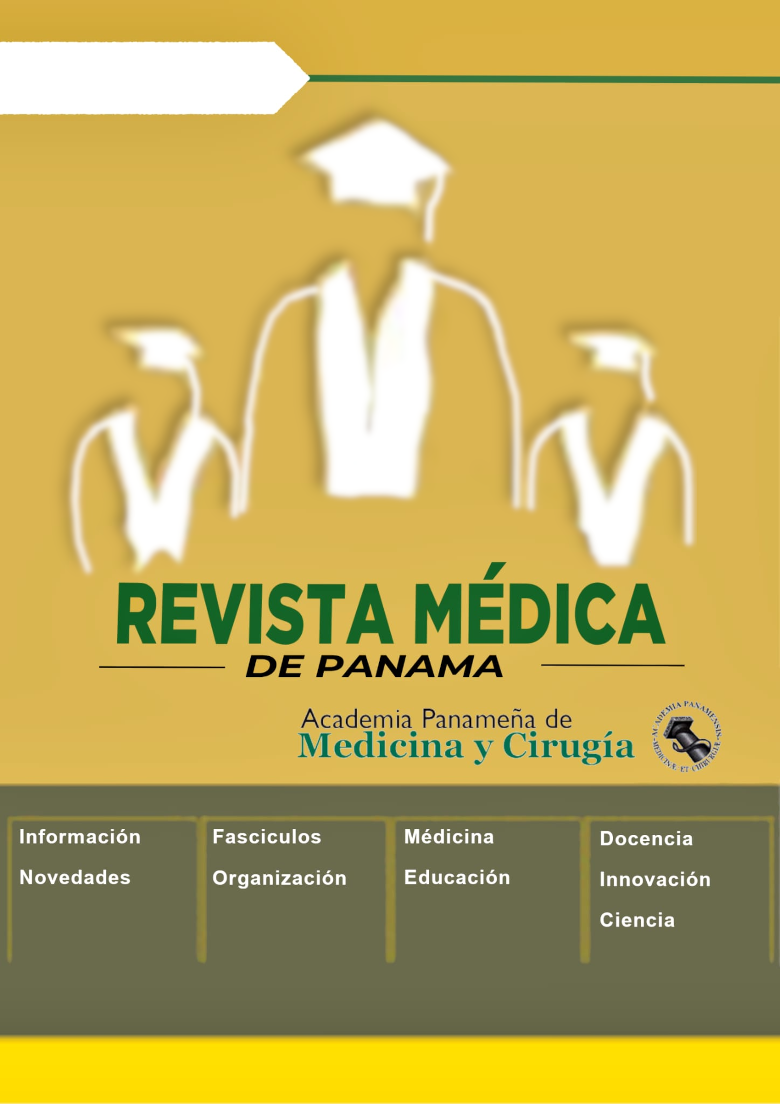Resultados postoperatorios de las colectomías electivas abiertas y laparoscópicas por cáncer de colon en el Complejo Hospitalario Doctor Arnulfo Arias Madrid

Autores/as
DOI:
https://doi.org/10.37980/im.journal.rmdp.20242388Palabras clave:
cáncer de colon, abordaje abierto, abordaje laparoscópicoResumen
Introducción: Metaanálisis internacionales muestran que la cirugía laparoscópica presenta mejores resultados postoperatorios que la cirugía abierta en el manejo del cáncer de colon. La tendencia en Panamá es la transición a la cirugía laparoscópica; sin embargo, no existen estudios que comparen ambas técnicas quirúrgicas. Objetivo: Comparar los resultados postoperatorios de las colectomías electivas abiertas y laparoscópicas por cáncer de colon en el Complejo Hospitalario Dr. Arnulfo Arias Madrid, de enero de 2015 a diciembre de 2019. Metodología: Se realizó un estudio observacional, transversal, correlacional causal (analítico), retrospectivo mediante la revisión de expedientes clínicos de los pacientes operados de colectomías electivas abiertas y laparoscópicas por cáncer de colon en el Complejo Hospitalario Doctor Arnulfo Arias Madrid, de enero de 2015 a diciembre de 2019. Resultados: De 87 casos estudiados, 45 correspondían a cirugía abierta y 42 a cirugía laparoscópica. Encontramos que el abordaje abierto se asocia a una mayor mortalidad intrahospitalaria (χ² 4.951, p 0.026), mortalidad a los 30 días postoperatorios (χ² 6.014, p 0.014), íleo postoperatorio (χ² 5.803, p 0.015), fuga de anastomosis (χ² 12.833, p 0.0003) y dehiscencia de herida quirúrgica (χ² 7.105, p 0.007) que el laparoscópico. El riesgo relativo de infección con abordaje abierto es 8.9 veces mayor que con abordaje laparoscópico [RR = 8.865 (95% IC = 1.058 – 74.286) p=0.044]. Conclusiones: La epidemiología del cáncer colorrectal en nuestra institución se asemeja a la de la literatura mundial. Nuestros resultados incentivan a implementar la cirugía mínimamente invasiva para brindar mejores resultados.
Publicado
Número
Sección
Licencia
Derechos de autor 2024 Infomedic Intl.Derechos autoriales y de reproducibilidad. La Revista Médica de Panama es un ente académico, sin fines de lucro, que forma parte de la Academia Panameña de Medicina y Cirugía. Sus publicaciones son de tipo acceso gratuito de su contenido para uso individual y académico, sin restricción. Los derechos autoriales de cada artículo son retenidos por sus autores. Al Publicar en la Revista, el autor otorga Licencia permanente, exclusiva, e irrevocable a la Sociedad para la edición del manuscrito, y otorga a la empresa editorial, Infomedic International Licencia de uso de distribución, indexación y comercial exclusiva, permanente e irrevocable de su contenido y para la generación de productos y servicios derivados del mismo. En caso que el autor obtenga la licencia CC BY, el artículo y sus derivados son de libre acceso y distribución.






